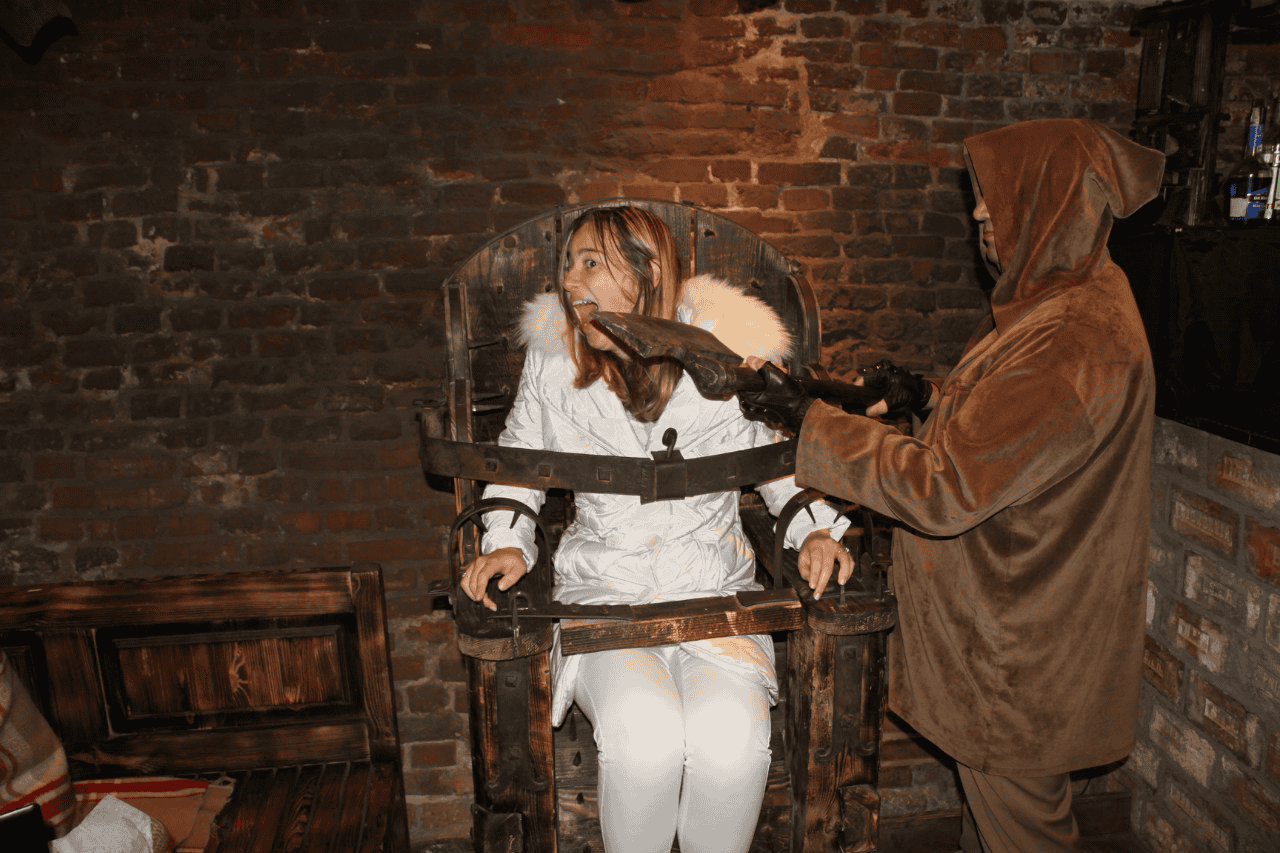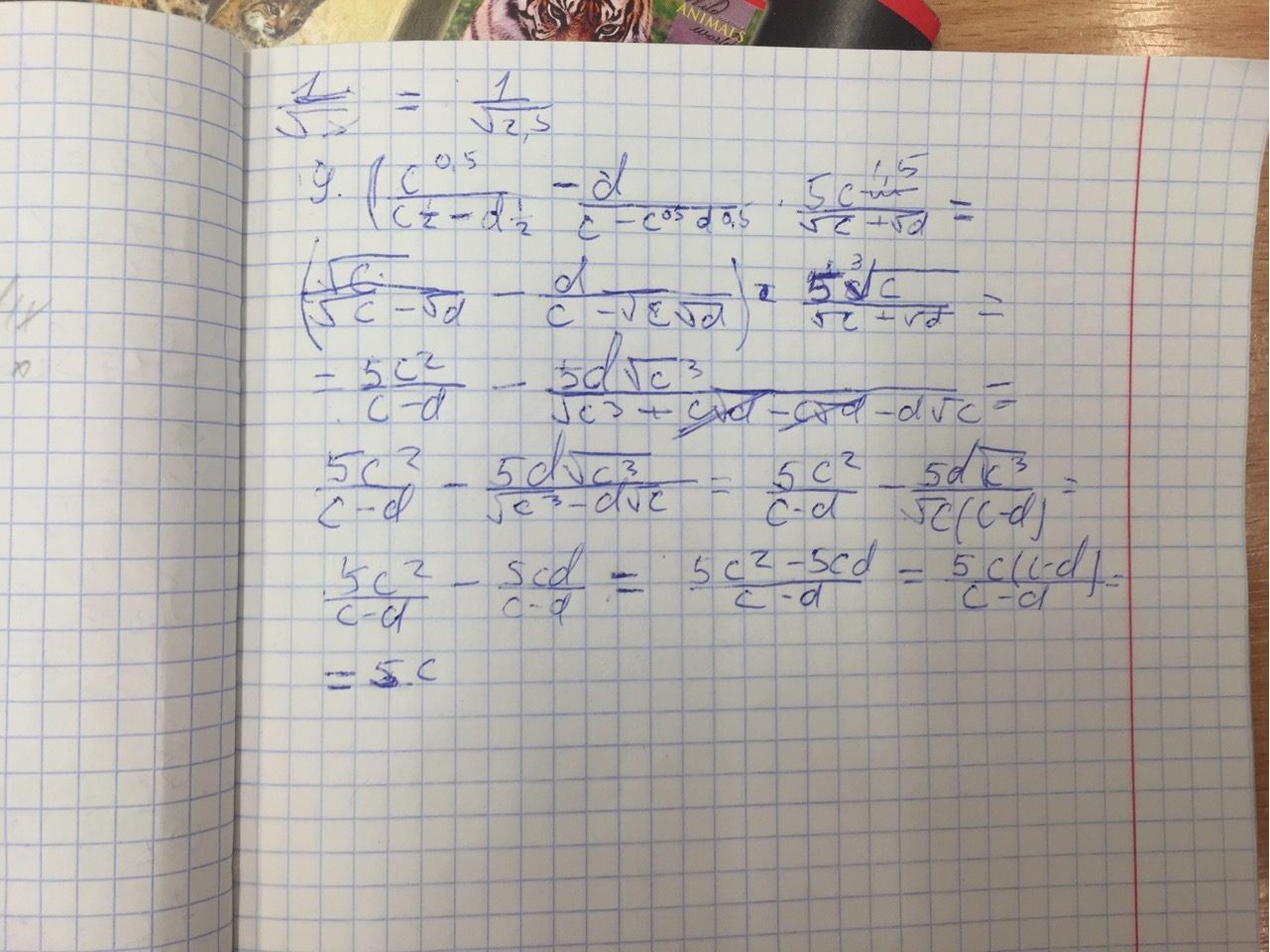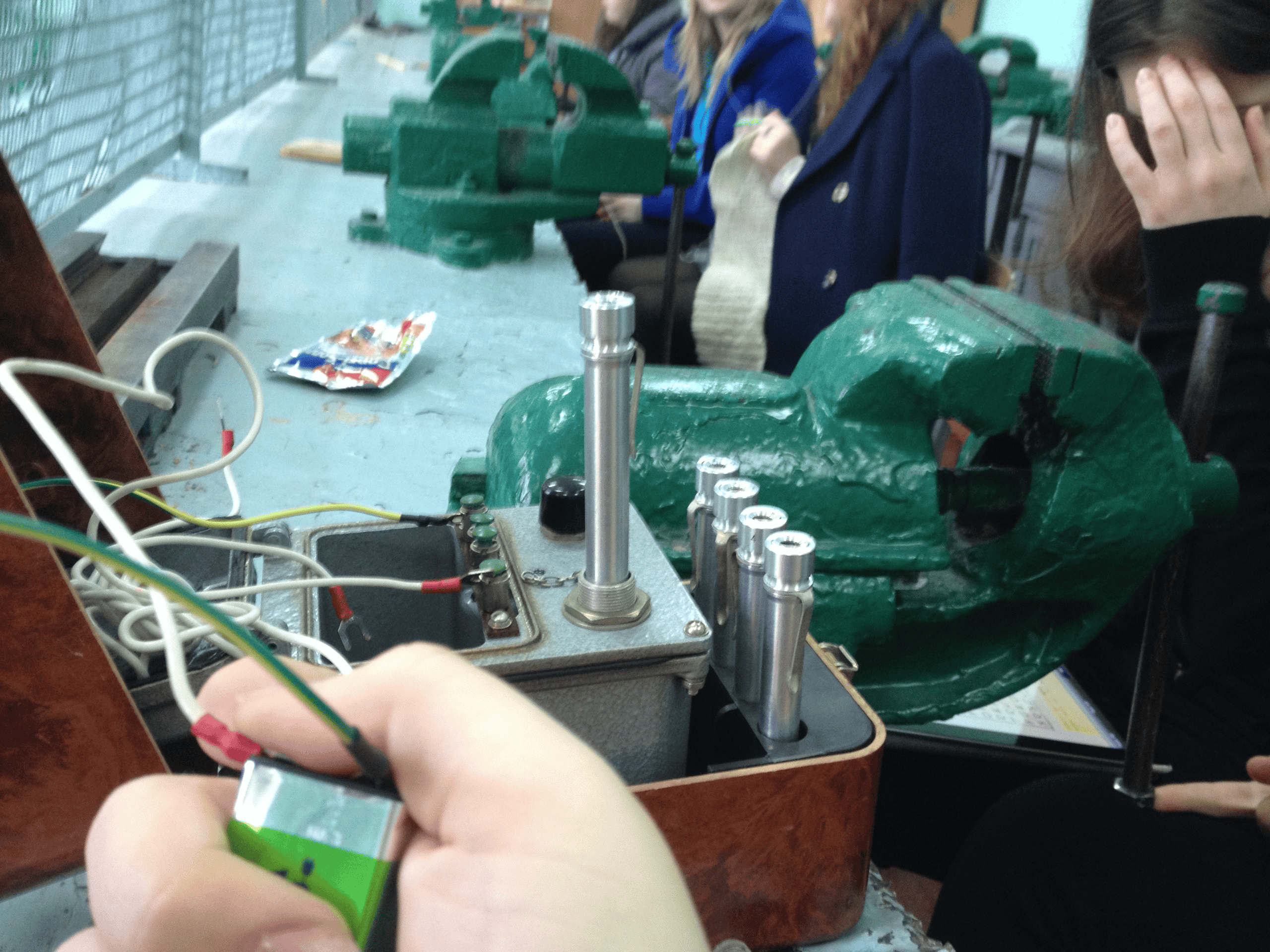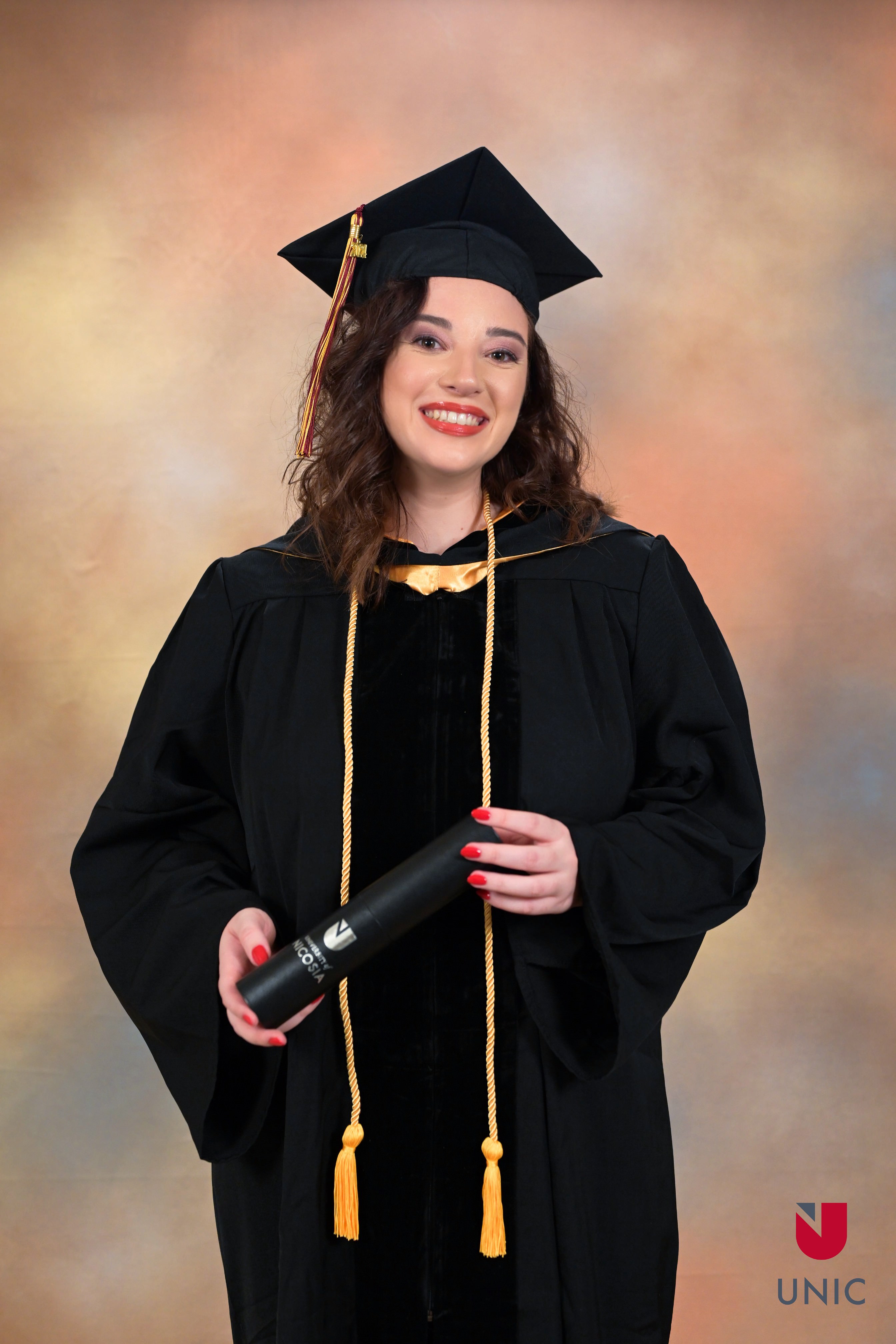

We’ve rebranded to reflect who we’ve become: a science-based, privacy-focused proctoring platform designed for modern education, certification, and workforce assessments. OctoProctor represents our commitment to smarter, more adaptable, and test-taker-friendly remote proctoring.
What makes one cheat, and what breaks one from the cycle? Maria Larkin’s villain-worth origin story proves that communication can transform integrity from a death drive tool to a cultural mission filled with compassion.
Once the kid accused first and heard later, I trace how humiliation turns into cheating, and why trust and transparent design beat socially constructed compliance panopticons. I discuss the importance of communication in academic integrity through the lens of my professional and academic path, which includes philosophy and children's literature.
Two months into a Ukrainian state school, at fourteen, still buying underwear in the kids’ department, I was called to the front of the class. The teacher lifted my skirt and announced I was hiding crib notes under it. I wasn’t. Thirty pairs of eyes stared while I realized the room had already written my biography. I ran out, crying, chased by prickly laughter and puns. After that, I complied with the expectations and cheated my way out of math throughout 8th and 9th grades.
This trauma is the straightest line to why I care about academic integrity at all, 13 years after the incident. I examine cheating through the lenses of social constructivism, psychology, and communication, rather than generalizing the way of life as identical to the crime. Think of social constructivism as different climates that living things adapted to in order to survive. In that room, the climate said: this is how we do things here and I adapted.
Nobody is born a “cheater,” or an “A student.” We come to the world as a blank canvas, yet we all remain lifelong learners. We are also social creatures that learn by observation and replication, meaning that our surroundings define who we are, whether we accept it or not. I was a neurodivergent kid in motion – California to Ukraine – spent half of my time studying remotely while changing five schools as we navigated my dad’s career. As a child, I hyper-focused on paleontology, Egyptology, and ornithology. Besides physically locating my interests, I wanted to tell their stories.

My father’s side was five generations of physicists who claimed the humanities were “for the dumb.” Ironically, my mom was a philologist and a writer, the only one in my close family with a non-STEM diploma. Biology almost kept me, if not for chemistry that pushed me away; math failed me repeatedly; and the adult world had no language for integrating an ADHD brain like mine into a classroom like theirs.
So yes, I cheated. For a while, it felt like the only way to breathe.
Conventional school universally sucks, and becoming an adult with 2 degrees in Communications + an ABD sealed the deal here. I primarily received my secondary education in Eastern Europe, and I believe there are some differences in the Western tradition; yet, globally, they are equally problematic – the education system is outdated, unwelcoming, and abusive. And it is not upon your kid to change or defy century-old malpractices. Younglings barely get any rights by high school, and their opinions are guided by hormones and confusion – at least according to educators and parents, who refuse to listen and mimic whatever was done to them when they were kids themselves.

What is really detrimental is the culture the child grows up in. Attitudes towards education and integrity may differ significantly and come as a cultural shock if one decides to move to another country. In Ukraine, academic cheating is not such a grandiose offense as it is in the States. Moreover, copying someone’s exam or using crib notes is socially acceptable. It is also challenging to break habits, especially when they are generational. In the USSR, academic cheating was some sort of sport. Parents of my generation casually cheated in school or university. The biggest dream was to learn a single exam question and successfully draw it in front of professor. Yet, somehow, they emerged as one of the most literate generations, gifting their kids progress they could have only dreamed of. Crib notes do not hurt as much as the Western education system paints them. If a student sat down and managed to synthesize and condense their knowledge onto a tiny patch of paper by hand, they already know the materials well enough to get their B or A. Often, when an F or D pupil copied an exam, they made mistakes and still received their fair grade, while A or B students found and corrected others’ mistakes as they copied. It is the involvement of critical thinking that really makes a difference in studying, currently eroded by the AI-powered cheating.

My cheating occurred when you either wrote crib notes beforehand, copied answers from a classmate, or improvised using the internet. No Google AI answers, you had to actually think of your browser prompt, skim through a couple of websites, and quickly sew together the answer on your own, avoiding being caught. In most cases, you still learned something, although incomparable to the pre-Internet era.
I didn’t stop cheating because someone scared me straight. Punishments, screaming rounds, and low grades simply numbed me. I stopped because the conditions changed. First, our household reset – father’s betrayal did the ugly work of forcing clarity about what dishonesty does to people. Second, I moved to a class with different teachers who saw strengths before pecking on shortcomings. Third, I finally felt safe both at home and at school. When a classroom stops treating you like a problem to be contained, learning catches up faster than any punishment can push it. I graduated at the top of my class with straight As, won English Olympiads, and presented scientific research at the Minor Academy of Sciences. Same brain, different social surroundings.
That epic win feels bittersweet now, nonetheless. 9 subjects and 2-3 tutors a day burned me out, and I soon stopped viewing anything below an A as a good grade. I believe that allowing students to choose their subjects and electives beyond the required basics is a better approach to education than collectivism, which forces subjects down students' throats regardless of their chosen specializations. I have never applied trigonometry for engineering or Newton's laws of motion to launch a theoretical shuttle into Earth’s orbit since graduating from high school, but boy, they took a lot of my time!

Higher ed felt like a reset – new country, people, me. I already worked in my mother’s children’s literature business, so I even had a little prerogative compared to my peers.
Although I finally did what I loved, exams stressed me as the stakes seemed even higher than in high school. Academic integrity is a routine, and it occupied the majority of my time. The most uni professors were amazing, and many wondered why I was panicking so much, hoarding tons of handwritten notes, and desperately attempting to write everything after them. I was also surprised by how relaxed Western education was – we even got lecturers’ notes uploaded online for later!
The humane approach of Western education was definitely a delight. Nevertheless, I found myself thinking that despite strict academic rules, many of my classmates lacked discipline. Not that they didn’t study – many didn't study the subjects beyond the bare minimum to earn a decent grade. I found myself hating group projects because our understanding of “excellent result” was different, and in 90% of cases, I ended up stepping in and doing parts of others’ work. Only once did I feel so pissed and squeezed that I told the lecturer about what was happening in the group. Although, now I think that some simply avoided wasting time on things they will not use in the future.
On the positive note, I appreciated open-book exams, our lecturers providing us with their grading rubrics, and some even giving us essay questions from the previous year to practice on for closed-book exams. They also kept one or two for us, ensuring we wouldn't fail or stress out completely. The communication department struck a balance between integrity and our well-being.

In 2020 I got BA majoring in film, but COVID made its corrections into my cinematic plans. I also got more involved with political rhetoric, media theory, and crisis communication during my MA. My creative films turned into documentaries, and I increasingly saw the future in kids rather than simple business. The dangers posed by partisan media and education disturbed me. I felt the urge to protect the new generation: mine was already screwed, but we still can act as a foundation for a more global change. It would have been impossible without involving the children's milieu, though.
Converting peripheries is what makes communication mass. You slowly deradicalize and expand through already converted public, listening, adjusting, and negotiating in the process. After studying political rhetoric and philosophy in depth, I came to the conclusion that communication is a universal asset – it can act like a medicine, weapon, peacemaker, educator, etc. The issue is that it is routinely misused and disregarded. Returning to how the social sciences were treated in my family, I can now answer that there would have been no STEM if there had been no communication. Communication is the very reason we are still here. We should focus more on understanding each other, nurturing respect, and moving towards a better future together, rather than competing to be the smartest.
I still don’t believe exams measure the whole of a person. But I do believe moments of constraint can be honest mirrors if we design them with a spine and a heart.
If you read my CV, it looks like three lives braided together. I’ve built campaigns, run community programs, staged hybrid treasure-hunt competitions with a real golden trophy, worked in film productions, produced books that traveled to dozens of countries, and presented at academic conferences while writing and researching on the side. Everything about it trained me to see patterns and miscommunications, and to translate across people who don’t speak the same professional language. Being multidisciplinary is a prerequisite for the future, where employers may prefer AI over a human, in my opinion.

You can’t bully people into believing in a system. Bullying is a blunt force that may have been possible during the golden age of the Hypodermic Needle Theory. Academic integrity is also a matter of communication through various channels, noise, and messages for different audiences. You earn their time and sympathy by making the honest path feel human and just.
Children’s literature humbled me with the sacred and fragile nature of attention. You don’t get it by shouting, kids will shut down and ignore you sooner than you will notice your horns growing in the mirror. Building a world that a child wants to inhabit is what will get their participation and will stay with them throughout life. That applies to classrooms and assessments too. If the world we build says, “I dare you to mess up,” we shouldn’t be surprised when kids spend all their creativity routing around the dare. And, undeniably, there is a tiny kid living inside every adult.
Yup, it is odd to see a former cheater and someone who openly says that modern education sucks work at a remote proctoring company. From the student's seat, proctoring can feel like an apparatus between them and their future. In that mindset, rules sound like suspicion. I’ve been that student, I know the survival brain that switches on when the message is “one midterm decides your life.” That’s a message problem, a design problem, and a power problem a punishment can’t correct.
I feel like joining the marketing team at OctoProctor was done at the right time. As a chronic student with broad international experience I bring the much-needed university test-taker representation to the exam table. When a university drafts a policy to manage risk, delivering it as rules without communicated reasons, the signal that lands is of mistrust. Students will comply publicly, yet we all know the cheating rates and growing investigation costs. My generation is all about representation and agency, and I believe it is a powerful step towards inclusive education. Students should never be mere listeners, but active owners of their education. That’s what solves power imbalance and creates dialogue where everyone learns.

Bringing audience perception and Neo-Aristotelian rhetoric expertise to proctoring software lets me enhance our company’s motto, “proctoring helps.” Foucault, Freud, Žižek, Ferenczi, and Nietzsche all discussed the death drive, stress, and power imbalance from different perspectives. They remind me that behavior grows in soil of punishment cultures, fear economies, and the scripts we inherit.
Thus, being a student and communicating academic integrity aren’t at war inside me. I don’t evangelize surveillance – no one is the Devil’s lawyer in OctoProctor’s team. We insist on dignity and acknowledge the existing issues in assessment methodologies and communication. Writing policies in human language, explaining what an exam actually measures, making accommodations proactive, training reviewers to distinguish between stress and subterfuge, publishing what gets flagged and why, and providing students with a way to ask questions without risking punishment are what my department does and what institutions should match. Ultimately, tools are not values; it’s the people who give tools meaning and accountability.
I’m not writing to rehabilitate my eighth-grade self. I’m writing so some other fourteen-year-old doesn’t spend a year learning to strategically disappear into the toilet on math exams instead of learning for their future. If the system humiliated you, I’m sorry. I can’t give you back that day. But I can keep choosing language that doesn’t hide the stakes or vilify you. I can insist that honest design beats panopticon. I can be the adult I needed: someone who names what went wrong and still believes the room can change its mind.
I want a world where a student can be neurodivergent and still be read as honest. A world where institutions are brave enough to communicate what they’re afraid of, and students are brave enough to express how methodologies affect them. A world where a proctoring company can say, “We’re still learning,” and mean it.

I plan to become a university lecturer after obtaining my PhD, not to prove something to myself, but out of love for the future where learning is safe and interesting again. And I ask you to join me – when we practice together, integrity starts to feel like a culture.
From DIY systems and Linux to creating OctoProctor, secure assessment integrity software that handles 1m+ exams a year – Anton Skshidlevsky invites you to join a journey in time, programming, and academic rigor of EdTech founder.
More OctoProctor teammates share how discipline, joy, empathy, and cooking rituals help them stay balanced, energized, and creative.
This release adds 2FA for admins and managers, boosts face detection speed by 45%, improves job tracking, and fixes key browser issues for smoother proctoring sessions.
Academic dishonesty and cognitive offloading are mounting challenges in the age of AI. The good news? Integrating AI literacy and AI in assessment may help.